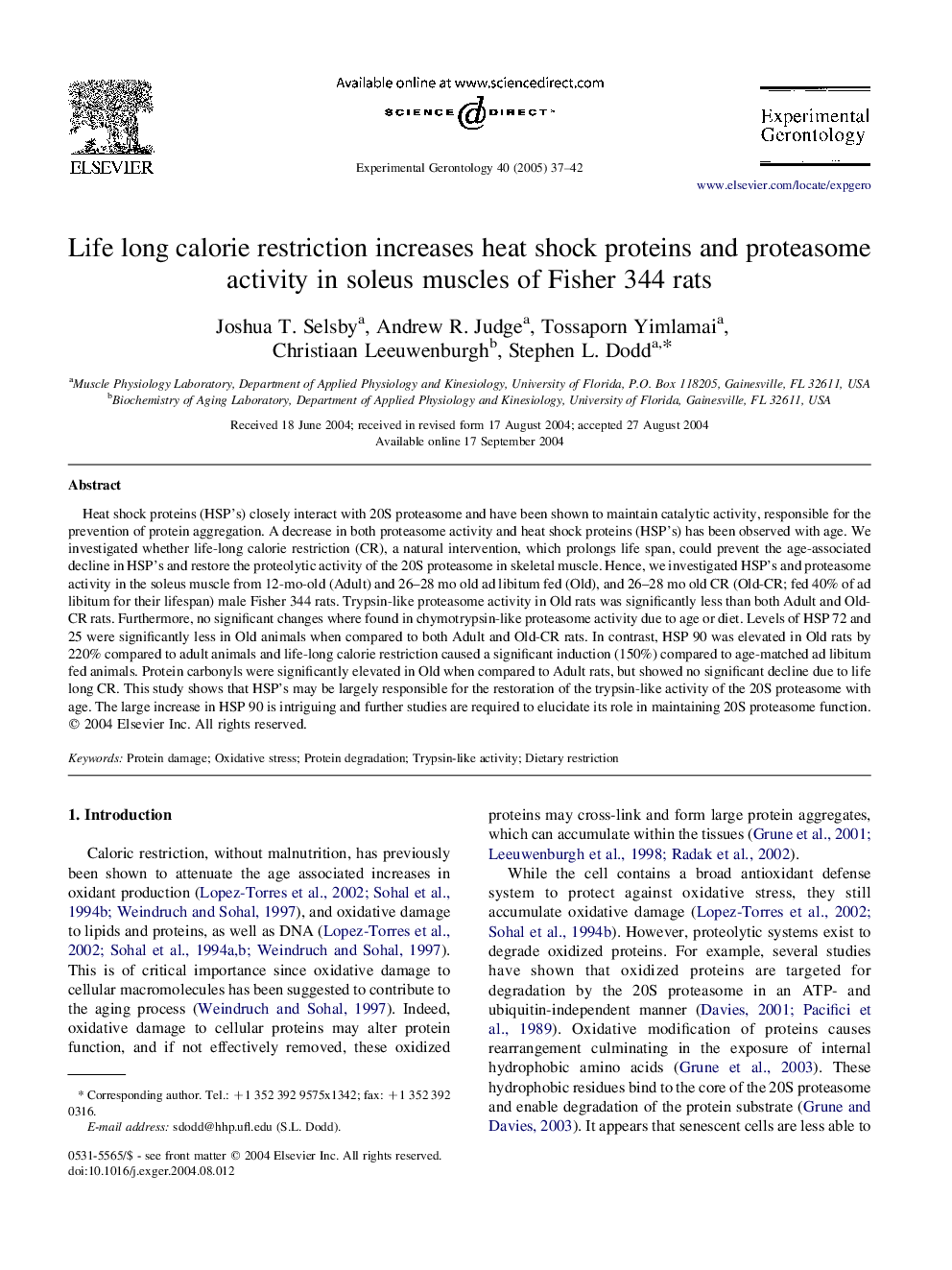| Article ID | Journal | Published Year | Pages | File Type |
|---|---|---|---|---|
| 9879994 | Experimental Gerontology | 2005 | 6 Pages |
Abstract
Heat shock proteins (HSP's) closely interact with 20S proteasome and have been shown to maintain catalytic activity, responsible for the prevention of protein aggregation. A decrease in both proteasome activity and heat shock proteins (HSP's) has been observed with age. We investigated whether life-long calorie restriction (CR), a natural intervention, which prolongs life span, could prevent the age-associated decline in HSP's and restore the proteolytic activity of the 20S proteasome in skeletal muscle. Hence, we investigated HSP's and proteasome activity in the soleus muscle from 12-mo-old (Adult) and 26-28Â mo old ad libitum fed (Old), and 26-28Â mo old CR (Old-CR; fed 40% of ad libitum for their lifespan) male Fisher 344 rats. Trypsin-like proteasome activity in Old rats was significantly less than both Adult and Old-CR rats. Furthermore, no significant changes where found in chymotrypsin-like proteasome activity due to age or diet. Levels of HSP 72 and 25 were significantly less in Old animals when compared to both Adult and Old-CR rats. In contrast, HSP 90 was elevated in Old rats by 220% compared to adult animals and life-long calorie restriction caused a significant induction (150%) compared to age-matched ad libitum fed animals. Protein carbonyls were significantly elevated in Old when compared to Adult rats, but showed no significant decline due to life long CR. This study shows that HSP's may be largely responsible for the restoration of the trypsin-like activity of the 20S proteasome with age. The large increase in HSP 90 is intriguing and further studies are required to elucidate its role in maintaining 20S proteasome function.
Related Topics
Life Sciences
Biochemistry, Genetics and Molecular Biology
Ageing
Authors
Joshua T. Selsby, Andrew R. Judge, Tossaporn Yimlamai, Christiaan Leeuwenburgh, Stephen L. Dodd,
